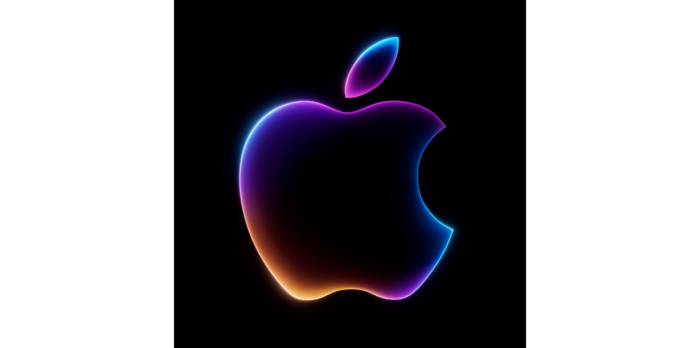In a landmark settlement, tech giant Apple has agreed to pay a hefty $95 million to settle a long-standing lawsuit that accused the company of secretly recording conversations through its voice assistant, Siri, without user consent. The case, which has captured global attention, sheds light on privacy issues surrounding voice-activated devices.
The lawsuit, filed in a federal court in California, claimed that Siri-enabled devices recorded private conversations even when users did not activate them with the usual “Hey, Siri” command. Worse still, some of these sensitive recordings were allegedly shared with third parties, including advertisers, raising serious concerns over the extent of Apple’s privacy practices.
“The allegations about a snoopy Siri contradicted Apple’s long-standing commitment to protect the privacy of its customers,” the lawsuit asserted. While the tech company has denied any intentional wrongdoing, the settlement agreement marks the end of a protracted legal battle.
The Allegations: Siri’s Unwanted Eavesdropping
The class-action lawsuit, initially filed five years ago, revolves around claims that millions of Apple users were unknowingly recorded by their devices. According to the plaintiffs, Siri, which is designed to respond to voice commands, was recording conversations even when not activated by the “Hey, Siri” trigger. These inadvertent recordings were said to have been stored and, in some cases, shared with Apple’s contractors or advertisers, making it appear as though the company had breached the privacy of its users.
“The fact that conversations were being recorded without any activation is a clear breach of consumer trust. This raises the question: How many users knew they were being monitored?” said John Doe, a privacy advocate. His statement reflects the widespread concern that personal privacy had been compromised for the sake of commercial interests.
The Settlement and Consumer Impact
Apple, although denying any intentional misconduct, has agreed to a settlement of $95 million, which will be distributed among affected consumers. According to the terms of the settlement, individuals who owned Siri-enabled devices between September 17, 2014, and 2023 may be eligible to receive compensation. Consumers can claim up to $20 per device, though the total compensation is capped at five devices per person.
Legal experts note that this settlement does not represent an admission of guilt by Apple but rather serves as a financial resolution to a case that could have cost the company far more if it proceeded to trial. The company’s swift decision to settle may also indicate a desire to avoid further reputational damage.
However, the settlement still requires approval from U.S. District Judge Jeffrey White, who will preside over the hearing scheduled for February 14, 2025, in Oakland, California.
Privacy Concerns: A Growing Issue
This settlement comes at a time when privacy concerns over digital assistants and connected devices are escalating. Siri, Amazon’s Alexa, and Google Assistant have all been at the center of debates regarding their ability to record conversations. While these devices are marketed as voice-activated, many users have raised alarms about their potential to collect and store sensitive information.
In response to these concerns, Apple has continuously emphasized its commitment to user privacy. The company has claimed that it takes extraordinary measures to protect the personal data of its customers and that Siri recordings are anonymized and only stored with the user’s consent. Despite these reassurances, incidents like the current lawsuit have undermined the company’s reputation in the privacy domain.
“We take privacy seriously and have always strived to implement robust measures to protect our users. While we don’t believe the allegations in this lawsuit are true, we’re settling to avoid prolonged litigation,” an Apple spokesperson said.
Legal Ramifications and the Role of Big Tech
The lawsuit has broader implications for the tech industry, particularly for companies like Apple that handle vast amounts of user data. Legal experts suggest that the case serves as a wake-up call for corporations to reexamine how they handle consumer privacy.
This lawsuit also brings to light the growing tension between user privacy and corporate profits. In a world where personal data has become a valuable commodity, many argue that consumers should have more control over how their information is collected and used.
Although the settlement represents a win for affected consumers, it also raises questions about the fairness of class-action settlements in tech-related cases. Legal fees for the attorneys involved in the case are expected to take a significant portion of the settlement fund—up to $29.6 million. This amount has sparked controversy, with some critics arguing that the majority of the settlement should go directly to the consumers who were impacted by the breach of privacy.
Nonetheless, for the millions of consumers whose privacy was violated, the settlement provides some compensation for the inconvenience and breach of trust they experienced. As the case progresses toward final approval, the tech giant’s reputation may take a further hit, but it may also set a precedent for future privacy-related lawsuits against big tech companies.
The outcome of this lawsuit will likely have long-lasting effects on Apple and its future privacy practices. The case has brought significant attention to the company’s data collection methods, and the public will be watching closely to see how Apple responds to evolving concerns regarding user privacy.
As the legal process unfolds, Apple may be forced to adopt more stringent privacy measures to restore its image as a leader in consumer protection. For now, however, the company’s $95 million payout serves as a reminder of the financial costs that can arise from privacy lapses, even for the most dominant players in the tech industry.

